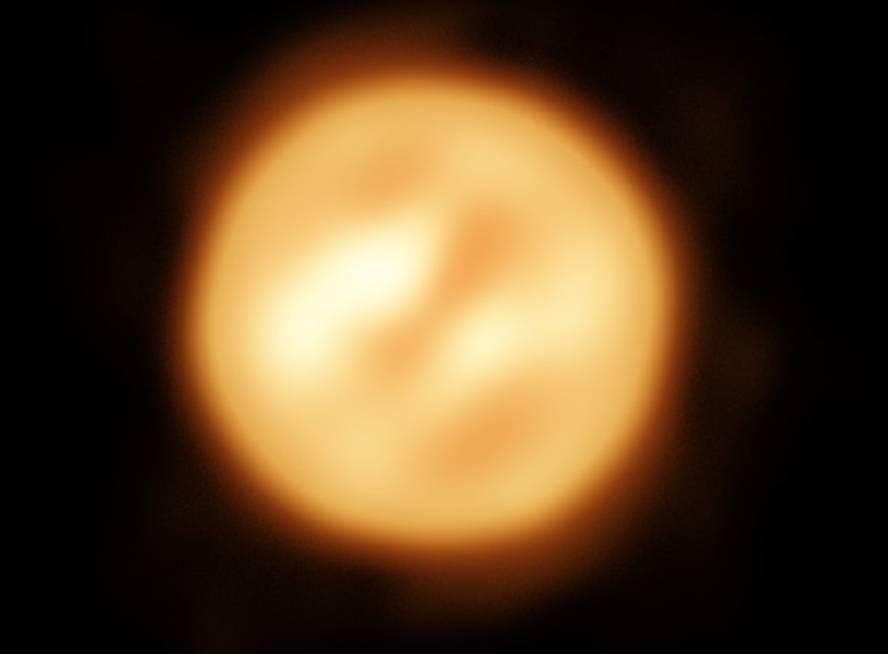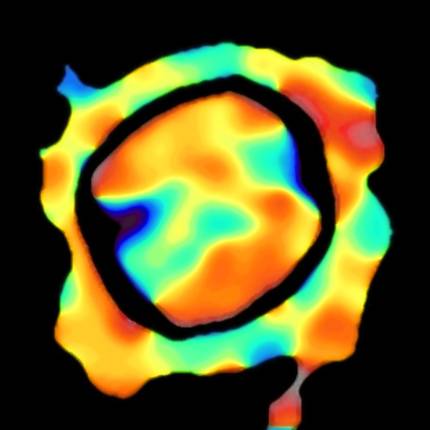Cover and atmosphere of the star Antares in images
They have achieved the best image of a star that is not the Sun using the interferometer of the ESO observatory's VLT telescope (VLTI). Antares, a red supergiant at the end of his life, has made a complete picture of his skin and a map of the speed of atmospheric materials. The results have been published in the journal Nature and on the ESO website.
VLTI can combine the light of four telescopes, thus creating a virtual telescope parallel to a 200 meter mirror. This has allowed astronomers to get much more detail than with a single telescope.
In fact, they did not know how the stars at the end of life lose their mass so quickly. Now, using vlti, they have calculated the difference in average velocities of atmosphere gases and total star throughout Antares. Result: Map of the relative velocity of gases in the atmosphere of Antares, the first star that is not the Sun.
Astronomers have determined that they have detected more turbulent low-density gases than expected, far from the star, and have come to the conclusion that this cannot be by convection, but by another process they do not yet know.
In any case, they stress that the method used is useful for analyzing the atmosphere of red supergiant stars: “has opened a new stargazing window,” said Keiichi Ohnaka, head of research.







